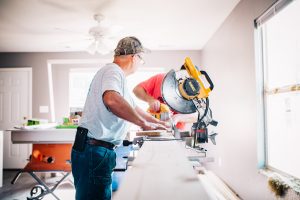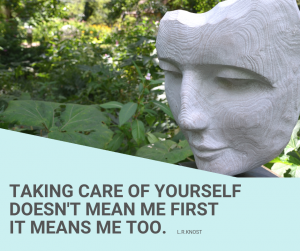10 tips for supporting an ageing relative at home.

At some point in our lives we all need a helping hand, no more so than when we reach our senior years. The ageing of our parents is inevitable and eventually they’ll reach a stage in life where they need extra help to remain living independently at home.
For most of us it’s an honour to offer this help, but it shouldn’t always have to fall to one family member to take on the full time support role. Whilst it may just be a case of asking for help and everyone will jump in, it’s easy to fall into taking it all on yourself. Where help isn’t as readily offered, with some planning, there are easy ways to share the responsibility and get other family members to play their part, in ways which work for everyone, including your loved one:
If you are just starting out caring for a relative, here are some tips to help with balancing work, family, your health and social life, with the time spent supporting a loved one.
Tip #1 – Fight the need to take over – enable a loved one retain their independence
Helping around the house with weekly cleaning tasks, picking up shopping or general home maintenance, goes hand in hand with supporting a loved one live independently at home.
BUT it’s important to get the right balance of them continue to try to do things for themselves and stepping in when really needed. We all need to feel like we have a purpose in life and a sense of achievement even from routine tasks can be inspiring, especially when age diminishes our ability to do many everyday activities for ourselves.
Despite living with Parkinson’s, I remember my Dad continued to enjoy getting stuck into some household DIY, but often his hands wouldn’t do what he wanted them to, at first I’d jump in to get the job done for him, but soon learnt that that was causing him to be even more frustrated than he was already feeling. We quickly found a balance where he would take the lead and where help was needed hand over the task, switching into the role of teacher guiding the completion of the job, ultimately giving us both a shared sense of pride and now he’s gone I’ve some great DIY skills to fall back on!

Tip #2 – Take time to listen not just hear them – Put down the mobile phone, even for 30 minutes your connected world won’t implode !
I often talk with my brother about taking time to sit and have a full conversation with our mum who is in her 80’s. It’s always tempting to turn on the TV, flick through a mobile phone or newspaper, only half listening, but it’s important to remember this may be the only conversation they have all day or weekend, so feeling like you are not being listened to can be upsetting and demoralising. Taking time to really listen to a loved one living alone, often feeling the negative effects of loneliness, will mean a huge amount to them and you may even feel more rewarded by the time you spend with them yourself.

It may be you have heard the tale being told so often you could recite it verbatim, but for them it’s a fond memory, which is important to be shared. So rather than say “I’ve heard that one before” ask some questions about the details, or share your memories of the occasion too to help keep conversation flowing around happy memories instead of being focused around health matters which can dominate.
Tip #3 – Encourage getting involved with hobbies and activities.
“Anyone who stops learning is old, whether at 20 or 80. Anyone who keeps learning stays young. The greatest thing in life is to keep your mind young.”
Henry Ford
Hobbies are a fantastic way to continue learning new skills throughout our lives and retirement is the ideal time to pick up on old ones or trying something new, with studies showing that hobbies can lead to reduced depression and open up opportunities to socialise more.

But this takes effort to get into the right mindset. I know my mum loves to paint or do crafts, but sometimes struggles to get “in the mood for it”, so it’s important to be encouraging about continuing their hobbies, maybe ask how they do things or for them to make you something for example.
It’s easy to not understand how with age comes physical restrictions and loss of mobility, all of which can cause frustrations from not being able to do things as they used too, but there will be ways to adapt to their current capabilities if you help. With Arts and craft for example, it’s more the process of composing the piece, than the end result which is important as is showing support and reassurance regularly.
Cooking together is something a friend and her Dad, who has onset dementia do regularly. He was a chef and struggles to follow recipes, but now with her help in the kitchen can do what he loves – cooking for the wider family. There is of course the dual benefit of enabling independence, whilst also ensuring a balanced and nutritious diet as those living alone will often not be bothered to make a proper meal for themselves . As the Alzheimer’s Society of Canada explains: “Sharing meal times with family and friends can provide structure to the day and increase the enjoyment of food”.
Tip #4 – Using technology to stay in touch and reduce feelings of isolation.
There is no single solution to resolving feelings of social isolation and loneliness, as every person’s experience is different, but what we can do as individuals is be committed to spending more time with our family and friends. Whilst home visits are always looked forward too, it can be hard to balance time across other work and family commitments, more than once a week.
For those who live overseas, so it’s hard not to feel guilty about not seeing those at home alone. A friend in the UK whose parents in their 70’s live at home in Ireland, has switched from a weekly phone call to video calling a few times a week, whilst she prepares dinner after work.

Modern technology is making frequent contact via video calling much simpler than ever before, which is why video calling is one of the many simple to use features of the Cognect screen, making it accessible to those who struggle with using technology. Grandchildren and friends who are part of your loved ones Cognect group can also connect whenever they have a moment or some news to share. Encouraging others to get in touch even with a quick message or by sharing a picture, video call or pop in if they are passing, to help keep them socially involved, also eases the pressure on you to always be in contact.
It’s hard to look at the news without seeing reports that loneliness and social isolation are harmful to our health and this is particularly the case for those living alone in their later years or with a medical condition. So it’s up to us to invest more time in what matters and taking just 15 minutes out of our daily screen time flicking through Apps to call someone living alone, can make all the difference to them, it has for my mum !
Campaign to end loneliness report that over 9 million people in the UK – almost a fifth of the population – say they are always or often lonely, but almost two thirds feel uncomfortable admitting to it (British Red Cross and Co-Op, 2016) or Two fifths of older people (about 3.9 million) say the television is their main company (Age UK, 2014) and 17% of older people only in contact with family, friends and neighbours less than once a week and 11% are in contact less than once a month (Victor et al, 2003).
Tip #5 – Why getting out of the house everyday is so important.
Research suggests that by heading out each day we’ll live longer than those who don’t. This is because despite any physical limitations we may have, getting out helps us to remain engaged and enables more opportunities for social interaction. The benefits of walking each day for the mind and body are well documented.
In the winter months this may prove more difficult, particularly for older relatives or those living with health conditions, which is why it’s great if we can encourage them to try new things to give purpose to those outings.
Having managed a Leisure travel business for a number of year’s, I have come across a range of social groups who have networks across the country and always open to welcoming new members. There are also some fantastic initiatives in local communities to help people get out of the house into the fresh air or to simply meet up with like-minded people. A few suggestions of nationwide groups and initiatives:
- Become a Shedder with the Men’s shed movement across the UK & Ireland
- The University of the Third Age is a movement which brings people together to develop their interests and continue their learning in a friendly and informal environment from Art to Zoology there’s a group.
- For those looking for a musical group the The Rock Choir have groups across the UK and
- Come Dancing and get fit is the advice from Age Uk who have further information on their website.
- Cinema’s across the country offer a series of Dementia friendly screenings which are supported by advice from Dementia UK, to make those attending more comfortable.
Tip #6 – Money matters
The increasing number of online household utility accounts and banks is a challenge for any family member not so confident with modern technology. This is not only making it increasingly difficult to manage finances, but also adds to levels of frustration and a lack of confidence. Take house insurance, we all dread the day the renewal finally needs looking at. With most companies now expecting you to search and renew online, it’s a long drawn out process with endless confusing email follow ups.
As I found, despite being insured through a reputable (or so we thought) insurance firm solely targeting retired customers, when the renewal came in for my Aunt’s policy, the quote was an additional £200 and 3 times the new customer online rate. Needless to say we switch provider and secured a rate lower than the prior year. We also made sure we didn’t tick the auto renew opt in for next year !
With pensions being squeezed and the cost of living rising, creating a household budget plan and setting reminders using the Cognect app for when accounts need to be renewed or paid, can ensure deadlines are not missed and the best rates secured.
Talking about money can often be awkward, especially when you are caring for a relative and paying for things on their behalf. By setting up a dedicated account and regularly sharing the budget details and statement of account, it lets everyone know the detail and avoids any misunderstandings. There is also the added bonus that one person isn’t out of pocket and your loved one doesn’t feel they are in debt to you. With the new era of online banks such as N26 or Monzo, it’s much easier to set up an account and allocate funds to every day expenses through pots. By tracking the type of spending through the easy to use apps, you can see how the family budget is being spent and keep on top of it.
Tip #7 – Sharing responsibility across the family for what’s needed the most.
Start as you mean to go one and agree the plan for routine tasks and scheduled appointments in advance with siblings and close family. This takes the stress away from always being the one trying to remember everything and gives others the opportunity to arrange their time in advance so they can also get involved. You never know they may surprise you if you just ask !

Whether its putting out the rubbish for collection every week, helping with the cleaning or doing a big monthly supermarket shop for heavy items or managing paperwork for the household, there will be everyday tasks each of you can take responsibility for, even if you don’t live close enough to visit often.
Having to be always asking for help can be difficult for a parent living independently, as they can feel they are being a bother. By using tools such as the cognect app to set up a family to do list as things come up, or you can schedule tasks which need to be done on a weekly, monthly or on an annual basis, such as Insurance renewals, so you don’t have to remember and can share out the list between you all.
Tip #8 – When it comes to medical appointments should it always be the same person going along?
In our experience the answer is wherever possible YES. However when agreeing the plan for the responsibility of the other tasks involved in supporting a parent live alone, medical appointments should be factored in, as they can be time consuming.
More frequent medical appointments generally also come with age and when a loved one is living with a condition such as Dementia or Parkinsons for example, these can involve multiple and lengthy Hospital appointments close together, where they will need the support of a family member to accompany them and take in what’s being said.
When sitting in on appointments it’s very useful to have a full knowledge of your parents recent medical history to know what meds they are on, the recommendations of other physicians and to give them the comfort and reassurance that if faced with a difficult diagnosis, you are there to ask the questions they may not be able to think about.
Check out our recent blog on navigating the healthcare system for more tips here
Tip #9 – Why you need to think about yourself sometimes
You may have more time because you don’t work full time or have kids at home, but this doesn’t mean your time is less precious to you, just because everyone else in the family is busy.

You never know they may actually feel guilty about not being so involved, but don’t want to tread on your toes, so you need to let them in and ask for help – you may be surprised !
Caring for an elderly relative can be physically and emotionally tiring and time consuming, so it’s important to look after yourself. This way when you are with them, you will be able to dedicate quality time to engage with them in the moment rather than feeling rushed.
Tip #10 – simply enjoy your time together !
After all, one of the greatest honours as a child is to be able to care for those in their senior years, as they cared for us in our younger years !
Conclusion
Get the right balance of how much you take on with how much they are able to do when supporting an ageing relative living at home.
Ask for help from the wider family, as generally they will be happy to do there bit and you can share roles between everyone.
Getting out into the fresh air and keeping up hobbies is a great way to reduce feelings of loneliness and isolation.
Plan for the more formal aspects of supporting a loved one in their senior years, such as financial, legal and medical matters as this will help avoid awkward conversations later on.
What works for you? Please let us know in the comment box below, we would love to hear from you.
Written by: Nicky Macfarlane, Co-Founder of Cognect.com. Learn more about how Cognect is helping families to support their golden age parents to live independently in their own homes for longer.
